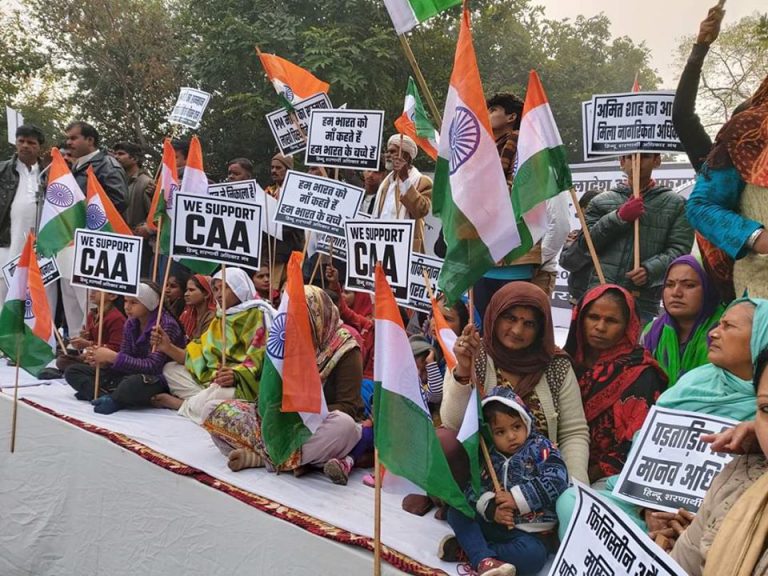
By Vinay Nalwa
In the second week of March 2024, the Indian government announced the implementation of the Citizenship Amendment Act (CAA). This legislation was passed by Parliament in December 2019. The CAA enables the central government to provide citizenship to individuals from Hindu, Sikh, Buddhist, Parsi, Jain and Christian communities from Bangladesh, Pakistan, and Afghanistan who entered India on or before December 31, 2014, seeking refuge from religious persecution.
It is worthwhile to note that the CAA is designed to grant citizenship to persecuted minorities from the three countries mentioned in the act, and not to terminate or take away anyone’s citizenship.
Nowhere in the Act, it is mentioned that the other persecuted communities which are not included can’t seek citizenship on the grounds of persecution. There are already existing procedures under which these requests/appeals are considered.
Time and again much well thought out solutions have been explored and put into practice to address the critical situation related to infiltration and illegal citizens. India has been facing the continuous influx of the persecuted minorities from the three neighbouring states- Pakistan, Bangladesh and Afghanistan.
The purpose of Citizenship Act is to consolidate Indian identity with the determination of citizenship becoming all-encompassing with the Right to individual freedom, the Right to participate in the exercise of political power, and the Right to security and share in nation’s heritage. It came into effect five years after India’s Constitution became effective as a Republic and eight years after Independence.
It is an Act to provide for the acquisition and termination of Indian citizenship. Due to the country’s division into two different states, a mass migration took place which continued for many years. The Citizenship Act, 1955 made provision for those migrated also but with a time frame. This legislation Act also lays down rules of termination of Indian Citizenship by way of ‘Renunciation, Termination and Deprivation’. Over the years, it has been amended by Acts of 1986, 2003, 2005 and 2015 which were duly passed by successive Parliaments.
It was the Kargil war which made the authorities realise and identify the lacunae in national security. After the Kargil war, a review committee was made to examine the sequence of events in the state of Jammu and Kashmir and make recommendations for the future. The first recommendation suggested by the Kargil Review Committee was a thorough review of the national security system in its entirety.
The Committee suggested compulsory registration of citizens to be included in a national register. Another recommendation was to make unique identification cards for citizens and coloured cards for non-citizen residents of India. All these exercises were recommended to start from border areas up to 20 km. The Committee had suggested that later these could be extended to the internal areas. The recommendations were accepted by the Government of India and the Citizenship (Registration of Citizens and Issue of National Identity Cards) Rules, 2003 was adopted.
Under Citizenship Rules, 2003, the NPR – a register of residents of the country – was prepared under the provisions of the Citizenship Act, at the local (village/sub-town), sub-district, district, state and national administrative level. In 2010 the demographic data for the entire country was also digitised thereby creating an electronic database of 118 crore persons.
The difference between the NRC and NPR is that the NPR is a register of record of people living in India so no documented proof of citizenship is asked and in NRC which is national register concerning only citizens, it requires citizenship proof documents. The purpose of NPR is to help in demographically improved targeting of benefits and services under the Government schemes, facilitating improved planning and prevent identity fraud. The NRC is primarily to keep a check on illegal immigration as mentioned in Assam Accord.
The misconception by clubbing of CAA with NRC and NPR led to fear, agitation, rioting and arson at many places all over India. This despite the fact that nowhere in NPR or NRC there is a mention of inclusion or exclusion of any community on the basis of religion.
Even during the Congress government’s rule in 1986, measures like issuing of special identity cards in Rajasthan were initiated as a safeguard to counter cross-border infiltration.
According to the Citizenship Rules, 2003, the Centre can issue an order to prepare the NPR and create the NRC from the data gathered in the National Population Register (NPR). It further says no new rules or laws are needed to conduct this exercise in the whole of India. So how can a new amendment – CAA 2019 – create challenges in this context?
The CAA 2019 has a more humane approach which are being overlooked by the critiques. One can ask, do the persecuted and oppressed need not be given an identity and a dignified place in Indian society? It is important to note that in CAA, NRC or NPR, there is no rule or even a mention of terminating citizenship on the basis of religion.
(The author is PhD in sociology and a commentator. She has authored two books)